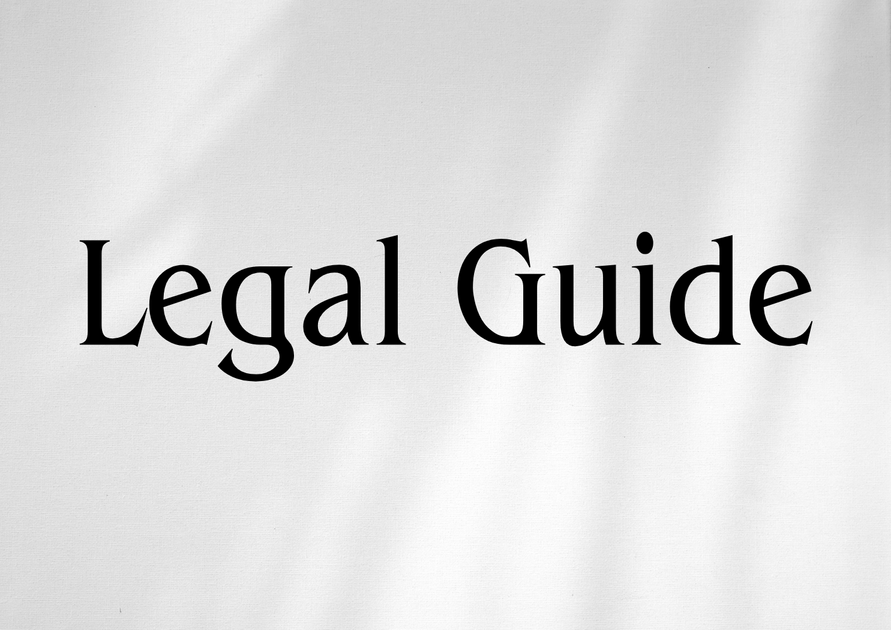Introduction: The Significance of Legal Risk Management in UAE Islamic Finance
Islamic finance has evolved as a cornerstone of the United Arab Emirates’ (UAE) financial sector, mirroring its commitment to Sharia-compliance and fostering investment across the Gulf region and beyond. With the UAE strategically positioning itself as a global Islamic financial hub, the legal frameworks governing Islamic financial products have become increasingly critical. Recent legislative updates and regulatory guidance—especially those issued in 2025 and referenced in Federal Decree-Law No. 14 of 2018 (as amended) and related UAE Central Bank directives—have directly influenced how Islamic financial products are structured and offered. For legal professionals, executives, and business leaders, staying abreast of these changes is not merely prudent; it is essential for legal compliance, reputational integrity, and business sustainability.
This article provides a detailed, consultancy-grade analysis of the current legal and regulatory environment impacting the structuring of Islamic financial products in the UAE. It draws on official sources, including the UAE Ministry of Justice, UAE Central Bank circulars, and directives from the Higher Sharia Authority. The discussion addresses both traditional and emerging risks, including the impact of recent legal updates, enhanced enforcement, and evolving compliance expectations. In doing so, the article highlights practical risk mitigation strategies, compliance best practices, and forward-thinking recommendations that UAE-based organizations should implement in 2025 and beyond.
Table of Contents
- UAE Islamic Finance Legal Overview: Regulatory Bodies and Key Statutes
- Fundamentals of Shariah Compliance in UAE Financial Law
- Structuring Risks in Islamic Financial Products: Principal Legal Challenges
- Recent UAE Law 2025 Updates and Case Studies
- Comparative Risk Analysis: Old Law vs. Recent Amendments
- Practical Insights: Legal Compliance Strategies for UAE Organizations
- Risks of Non-Compliance: Legal and Commercial Consequences
- Conclusion: Proactive Legal Strategies for UAE Islamic Finance
UAE Islamic Finance Legal Overview: Regulatory Bodies and Key Statutes
Primary Regulatory Institutions
Islamic finance in the UAE is subject to a layered and robust legal infrastructure overseen by key regulatory authorities:
- UAE Central Bank: The regulator for retail and wholesale Islamic banking and financial institutions. Enforces Shariah compliance through regular supervision and periodic circulars.
- Higher Sharia Authority (HSA): Established under Central Bank Circular No. 13/2018, the HSA has overarching authority to approve Shariah standards, resolve conflicts between institutional Shariah boards, and generally harmonize Shariah governance across the UAE financial sector.
- Dubai Financial Services Authority (DFSA) and Abu Dhabi Global Market (ADGM) Regulator: Oversee Islamic finance within the UAE’s financial free zones, incorporating international standards alongside UAE Federal Law.
- Federal Courts and Specialized Shariah Committees: Adjudicate disputes involving Islamic finance contracts, particularly when Shariah compliance or contract enforceability is contested.
Key Legal Instruments
The principal legal instruments relevant to Islamic finance—recently updated, amended, or clarified—include:
- Federal Decree-Law No. 14 of 2018 Regarding the Central Bank & Organization of Financial Institutions and Activities (amended 2022, further interpreted in 2025 drafts): Establishes the requirement for dedicated Shariah governance and institutional Sharia boards.
- Cabinet Resolution No. 31 of 2019 Concerning Economic Substance Regulations: Relevant for structuring Islamic financing special purpose vehicles and funds to ensure compliant economic substance.
- UAE Central Bank’s Standards for Shariah Compliance (Circular No. 2/2020 & subsequent updates): Prescribe internal controls, reporting measures, and annual Shariah compliance audits.
- Commercial Transactions Law (Federal Law No. 18 of 1993, as amended) and Civil Transactions Law (Federal Law No. 5 of 1985, as amended): Set out general principles for contract formation, execution, and enforceability—including for Murabaha, Ijara, Mudarabah, and other Islamic finance structures.
Fundamentals of Shariah Compliance in UAE Financial Law
Core Shariah Principles
Islamic financial products in the UAE must adhere to core Shariah tenets such as:
- Prohibition of Riba (interest)
- Exclusion of Gharar (uncertainty)
- Prohibition of Maisir (gambling/speculation)
- Asset-backing (tangible underlying assets)
- Profit-and-loss sharing
The Higher Sharia Authority (HSA) is responsible for interpretation and harmonization of these principles across institutions (UAE Central Bank Circular 13/2018). Each Islamic financial institution must appoint its independent Shariah Supervisory Board. However, since 2021 regulatory reforms, the HSA’s opinions prevail in case of conflict.
Legal Recognition of Shariah-Compliant Products
UAE law formally recognizes a broad array of Shariah-compliant instruments, including Murabaha (cost-plus sale), Ijara (lease), Mudarabah (partnership), Musharakah (joint venture), and Sukuk (Islamic bonds). Each product must be structured in strict accordance with both the HSA and relevant federal legislation to avoid the risk of being deemed non-compliant or unenforceable.
Structuring Risks in Islamic Financial Products: Principal Legal Challenges
Ambiguities in Shariah Interpretation
Despite ongoing efforts to harmonize standards, divergent interpretations of Shariah principles among Shariah Supervisory Boards remain a significant risk. A product structure deemed compliant by one board may be rejected by another, potentially undermining contract enforceability or commercial certainty. The 2025 HSA guidelines empower the Higher Sharia Authority to resolve such conflicts, but operational ambiguities persist, especially in multi-jurisdictional deals involving offshore structures. For example, cross-border Sukuk issuances may attract divergent compliance opinions leading to investor risk and possible legal challenges.
Documentation and Substance Risks
Legal documentation must accurately reflect the underlying Shariah-compliant structure. Errors in documenting Murabaha, Ijara, or Mudarabah contracts—such as inadvertent introduction of interest-based clauses or insufficient delineation of asset ownership—can result in both Shariah and legal non-compliance.
- Case Example: A major UAE bank’s auto Ijara product was subject to regulatory scrutiny after the contractual arrangements failed to evidence real asset transfer, potentially exposing the transaction to claims of disguised Riba.
Compliance with Cabinet Resolution No. 31 of 2019 concerning economic substance is crucial—especially for special purpose vehicles (SPVs) or offshore funds used in Sukuk and other structured deals.
Operational and Reporting Challenges
Effective implementation requires robust internal controls, regular compliance audits, and transparent reporting to both the Central Bank and the Higher Sharia Authority. Inadequate separation between conventional and Islamic activities (commingling of funds, for instance) can trigger regulatory sanctions, especially after the Central Bank’s 2022 and 2025 amendments increasing audit requirements for Islamic banks and finance companies.
Recent UAE Law 2025 Updates and Case Studies
Summary of Recent Legal Updates
Since 2022, and especially with the 2025 interpretative guidelines, notable changes impacting Islamic finance structuring in the UAE include:
- Mandated reliance on the HSA for Final Shariah Decisions: Formalizes the HSA’s preeminence, reducing uncertainty but requiring stricter product vetting (Central Bank guidelines, 2025).
- Enhanced Disclosure and Audit Requirements: Institutions must submit detailed Shariah audit reports and annual declarations of Shariah compliance, subject to civil and financial penalties for inaccuracies (Central Bank Circular 2/2022).
- Tightened Requirements for Economic Substance: Particularly relevant for SPVs used in Sukuk and Mudarabah structures (Cabinet Resolution No. 31/2019, detailed in MoF Guidance updated 2025).
- Heightened Enforcement against Commingled Banking Activities: Stringent segregation of Islamic windows in conventional banks (Central Bank enforcement action, 2025).
Case Study: Sukuk Structuring and Legal Pitfalls
Scenario: A major real estate developer sought Shariah-compliant financing via an offshore SPV issuing Sukuk. During onboarding, legal counsel discovered inconsistencies regarding the asset’s location and lack of clear asset transfer—potentially violating both Shariah and Economic Substance Regulations. Enhanced scrutiny under the 2025 updates required immediate remediation, including contract renegotiation and regulatory re-approval. Delay caused reputational harm and higher costs.
| Area | Old Law/Practice | 2025 Update | Risk Mitigation Guidance |
|---|---|---|---|
| Shariah Authority | Institutional SSBs often prevailed | HSA has binding national authority | Secure pre-clearance from HSA especially on novel structures |
| Audit Requirements | Annual external Shariah audit optional | Mandatory annual external Shariah audit & reporting | Engage reputable auditors; invest in internal controls |
| SPV Substance | Limited regulatory scrutiny | Full application of Economic Substance Regs (ESR) | Ensure SPV has real economic presence in UAE |
| Window Operations | Conventional-Islamic flows sometimes co-mingled | Strict segregation—operational and bank account level | Implement system-level controls and ongoing monitoring |
Comparative Risk Analysis: Old Law vs. Recent Amendments
Structured Comparison Table
| Infraction | Prior to 2025 | Post-2025 | Recommended Action |
|---|---|---|---|
| Shariah Board Disagreement | Possible contract unenforceability | HSA binding rulings; potential license suspension | Front-load regulatory engagement, seek advance clarity from HSA |
| Documentation Errors | Dispute risk; regulatory warning | Administrative penalties; mandatory remediation | Legal-vetted documentation and regular SSB review |
| Misstatement in Shariah Audit | Limited enforcement | Sharp financial penalties; potential public censure | Thorough, timely reporting; invest in compliance teams |
| Commingling of Islamic/Conventional Funds | Warning or symbolic sanction | Significant fines, potential loss of Islamic window | Operational separation, regular system audits |
Compliance Checklist: 2025 and Beyond
| Compliance Area | Legal Standard | Risk Indicator | Action Item |
|---|---|---|---|
| Product Vetting | HSA Pre-approval required for new products | Uncertified launches | Build in HSA consultation timeframe |
| Audit & Reporting | External audit, annual report to Central Bank | Missed deadlines | Calendar regulatory submissions, automate reminders |
| Economic Substance (SPVs) | Evidence of UAE-based operations | Offshore-only presence | Register SPV, document local activity |
| Window Operations Segregation | Full fund and systems separation | System integration gaps | IT system upgrades, periodic testing |
Visual Suggestion: Insert a process flow diagram illustrating steps in gaining HSA sign-off, from initial product concept to post-launch reporting.
Practical Insights: Legal Compliance Strategies for UAE Organizations
Steps for Mitigating Shariah and Regulatory Risks
- Early Engagement with Regulators and the HSA: Prioritize formal pre-clearance for new or complex products to avoid post-launch compliance challenges.
- Strengthen Shariah Governance Structures: Develop robust policies for vetting, documentation, and monitoring of Islamic finance products, ensuring that institutional SSBs are both empowered and aligned with HSA directions.
- Invest in Legal and Operational Training: Regular staff training on updated rules is critical, especially as the legal and operational threshold for compliance increases in 2025. Use certified training providers approved by the UAE Central Bank or Ministry of Justice.
- Audit and Technology Integration: Leverage fintech solutions for operational segregation, reporting, and risk management, especially in areas where IT systems must enforce the legal separation of Islamic and conventional finance activities.
- Conduct Regular Legal Health-Checks: Annual or semi-annual legal risk reviews with external counsel should verify document accuracy, contract enforceability, and compliance with evolving HSA interpretations.
Practical Hypothetical Example
Consider a retail bank introducing an innovative Shariah-compliant digital savings account. Early legal engagement reveals the technology platform’s mechanisms for profit calculation are at odds with updated HSA guidelines on Gharar. By revisiting the product in collaboration with the institution’s SSB and seeking HSA clarifications, the bank avoids post-launch remediation and reputational risk.
Risks of Non-Compliance: Legal and Commercial Consequences
Legal Repercussions
- Administrative Fines and Sanctions: Central Bank and Ministry of Justice can levy fines, publicly censure entities, or suspend Islamic finance operations in cases of repeated non-compliance (refer Federal Decree-Law No. 14/2018 Article 137 & 138, as amended 2022 and clarified 2025).
- Contract Unenforceability: Non-compliant structures risk being declared null and void by UAE civil courts, resulting in loss of principal, inability to realize collateral, or legal uncertainty regarding recovery proceedings.
- Reputational Damage: Shariah compliance lapses often attract adverse media coverage and loss of customer trust, further triggering regulatory scrutiny and potential withdrawal of licenses.
- Cross-Border Impact: UAE entities dealing with international Islamic investors may also face legal challenges and loss of business if structures are later found to be non-compliant, jeopardizing access to cross-border capital.
Compliance Strategies Moving Forward
- Adopt a culture of proactive compliance and transparency, embedding risk management into the product development lifecycle from inception to launch.
- Regularly update legal, compliance, and operations teams with interpretations and guidance from the HSA and the UAE Central Bank.
- For complex or cross-border deals, seek pre-launch legal opinions from licensed law firms and maintain clear documentation of all HSA and SSB communications.
- Consider appointing a dedicated Shariah Compliance Officer to coordinate with regulatory bodies and ensure ongoing adherence to updated standards.
Conclusion: Proactive Legal Strategies for UAE Islamic Finance
Islamic finance remains a vital part of the UAE’s economic vision. The increasing sophistication of regulatory frameworks—underscored by recent 2025 amendments and the expanded role of the Higher Sharia Authority—demands meticulous legal oversight, robust documentation, and operational discipline from financial institutions and businesses. The stakes are high: failures in compliance expose entities to not only administrative and legal penalties but also significant reputational harm. Proactive engagement, continuous legal education, and rigorous internal controls are no longer optional—they are prerequisites for sustainable participation in the UAE’s Islamic finance sector.
Looking ahead, the unified stance of the HSA, stricter audit obligations, and deeper integration of economic substance requirements signal a more transparent and investor-assuring market. Organizations that embed compliance at the core of their product structuring and governance processes will be best positioned to capitalize on the opportunities of a rapidly evolving Islamic financial landscape in the UAE. Legal consultants, executives, and compliance officers are advised to invest in regulatory relationship management, training, and technology integration to stay ahead of forthcoming legal developments.
For further consultancy or tailored guidance on structuring Shariah-compliant financial products under UAE law, we recommend direct engagement with legal experts possessing up-to-date knowledge and practical experience of the 2025 standards.



